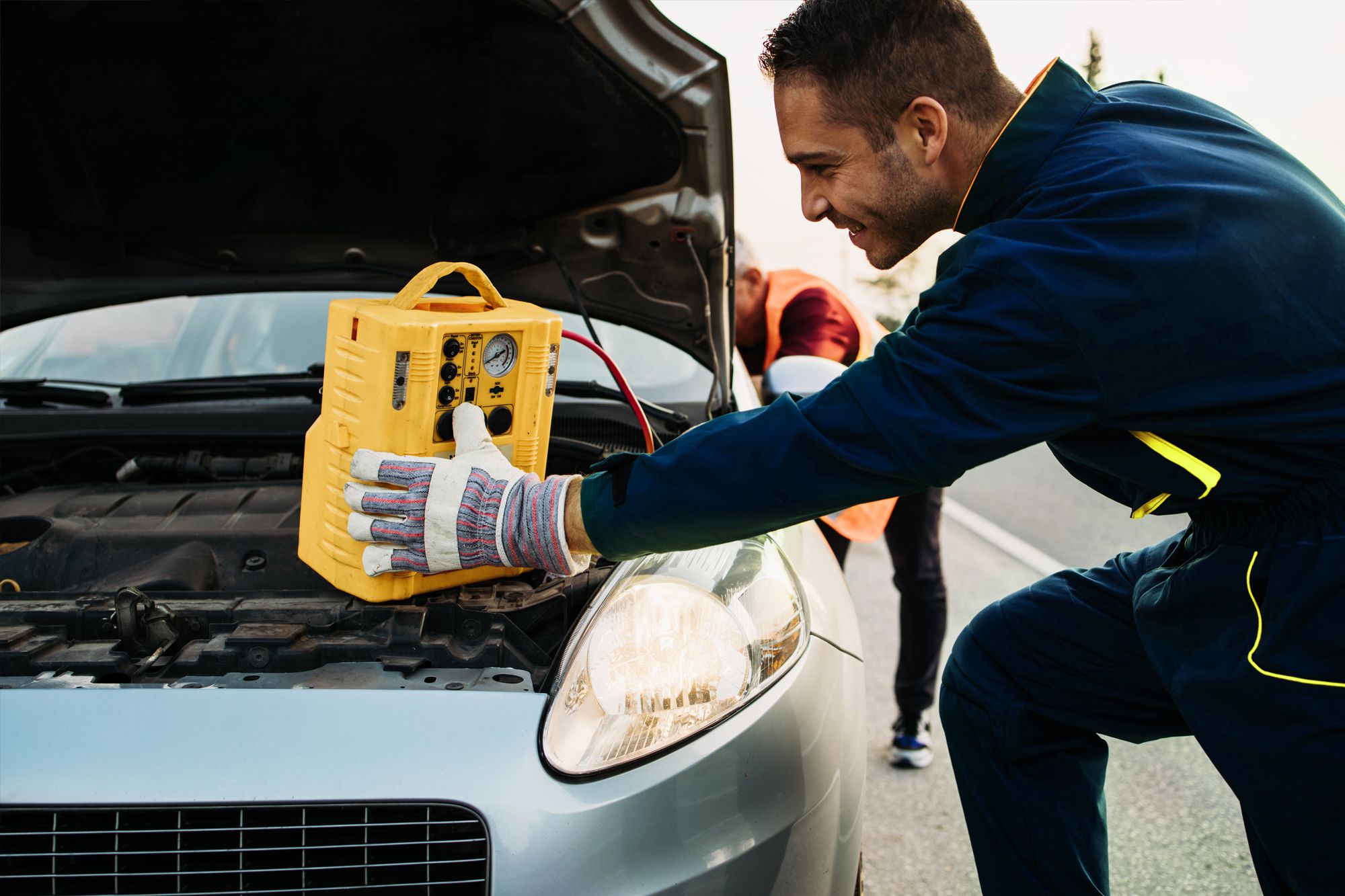All Categories
Featured
Your lorry depends on various fluids to maintain its components running efficiently and successfully. Ignoring these fluids can result in decreased efficiency, potential safety and security hazards, and costly repairs. Comprehending the function of each fluid and staying proactive in maintenance guarantees your car operates at its best. This article explores the crucial car fluids and their importance to your cars and truck's health and wellness.
![]()
Why It Matters: Without appropriate lubrication, engine components can grind against each other, resulting in significant damages. Upkeep Tips: Examine your oil level month-to-month using the dipstick and round off if required. Replace the oil and filter according to your automobile's solution schedule, typically every 3,000 to 7,500 miles depending on the oil type and driving problems. 2. Coolant: Regulating Engine Temperature. Coolant, likewise recognized as antifreeze, helps keep your engine's temperature level within the optimum variety. It prevents overheating throughout heat and cold throughout cool problems.
Why It Matters: Insufficient or abject coolant can bring about engine overheating, which can cause extreme damage. Maintenance Tips: Examine the coolant tank routinely and try to find leaks or staining. Flush and replenish coolant as advised, usually every 2 to five years. 3. Brake Liquid: Reputable Stopping Power. Brake fluid is essential for your car's stopping system, transferring the pressure from your foot on the brake pedal to the brakes themselves. With time, brake fluid can take in dampness, which lowers its performance.
Why It Matters: An endangered stopping system can drastically impact your security. Upkeep Tips: Inspect the brake fluid reservoir and guarantee the degree stays within this array. Modification the liquid every 2 to 3 years or as required. 4. Transmission Liquid: Smooth Equipment Shifts. Transmission liquid lubricates the transmission elements and ensures seamless gear modifications. It additionally avoids getting too hot by cooling the system.
![]()
Why It Issues: Ignored transmission fluid can bring about tailor slippage, getting too hot, or also total transmission failing. Maintenance Tips: Display the liquid's degree and problem on a regular basis. Change it according to the supplier's referrals, commonly every 30,000 to 60,000 miles. 5. Power Guiding Fluid: Effortless Maneuvering. Power steering liquid aids in smooth and precise steering. Low or polluted liquid can make steering more hard, placing pressure on the system.
Why It Issues: Poor guiding responsiveness can compromise your control over the automobile. Maintenance Tips: On a regular basis check the liquid degree and shade, and leading it off as needed. Listen to leaks or unusual steering noises. 6. Windscreen Washing Machine Liquid: Clear Exposure. While it doesn't influence performance, windshield washer liquid is important for maintaining exposure, particularly in unfavorable conditions.
![]()
Why It Issues: A tidy windshield guarantees you can see plainly, decreasing the danger of mishaps. Maintenance Tips: Replenish the washer liquid reservoir regularly and use a formula fit to your environment to avoid cold or spotting. Why Normal Fluid Maintenance is Crucial. Ideal Efficiency: Correct liquid degrees and quality ensure all systems operate smoothly. Security Guarantee: Brake and power guiding fluids directly affect your capability to regulate the vehicle. Price Cost savings: Preventative maintenance stays clear of costly fixings by capturing possible problems early. Long life: Liquids in good problem help extend the life of crucial components, including the engine and transmission. Quick Tips for Effective Liquid Upkeep. Follow the Guidebook: Refer to your vehicle's proprietor handbook for details upkeep intervals. Look Out for Leaks: Pools under your vehicle can indicate fluid leakages that require prompt focus. Use Recommended Products: Stay with fluids suggested by your automobile supplier to prevent compatibility concerns. Focus On Caution Signs: Dashboard signals or uncommon performance can signify liquid issues. Conclusion. Maintaining your automobile's fluids is among the simplest methods to keep it running efficiently and securely. Whether it's engine oil, coolant, or brake liquid, each plays an essential function in your automobile's total health and wellness. Normal checks, combined with prompt replacements, can avoid malfunctions, boost efficiency, and extend the life of your car. Keep positive, and you'll delight in a smoother and safer driving experience for many years ahead.

- Engine Oil: The Lifeblood of Your Engine. Engine oil plays a crucial function in oiling the engine's moving parts, reducing friction, and safeguarding against wear and getting too hot. In time, oil breaks down or becomes contaminated with particles, which can jeopardize its effectiveness.
Why It Matters: Without appropriate lubrication, engine components can grind against each other, resulting in significant damages. Upkeep Tips: Examine your oil level month-to-month using the dipstick and round off if required. Replace the oil and filter according to your automobile's solution schedule, typically every 3,000 to 7,500 miles depending on the oil type and driving problems. 2. Coolant: Regulating Engine Temperature. Coolant, likewise recognized as antifreeze, helps keep your engine's temperature level within the optimum variety. It prevents overheating throughout heat and cold throughout cool problems.
Why It Matters: Insufficient or abject coolant can bring about engine overheating, which can cause extreme damage. Maintenance Tips: Examine the coolant tank routinely and try to find leaks or staining. Flush and replenish coolant as advised, usually every 2 to five years. 3. Brake Liquid: Reputable Stopping Power. Brake fluid is essential for your car's stopping system, transferring the pressure from your foot on the brake pedal to the brakes themselves. With time, brake fluid can take in dampness, which lowers its performance.
Why It Matters: An endangered stopping system can drastically impact your security. Upkeep Tips: Inspect the brake fluid reservoir and guarantee the degree stays within this array. Modification the liquid every 2 to 3 years or as required. 4. Transmission Liquid: Smooth Equipment Shifts. Transmission liquid lubricates the transmission elements and ensures seamless gear modifications. It additionally avoids getting too hot by cooling the system.

Why It Issues: Ignored transmission fluid can bring about tailor slippage, getting too hot, or also total transmission failing. Maintenance Tips: Display the liquid's degree and problem on a regular basis. Change it according to the supplier's referrals, commonly every 30,000 to 60,000 miles. 5. Power Guiding Fluid: Effortless Maneuvering. Power steering liquid aids in smooth and precise steering. Low or polluted liquid can make steering more hard, placing pressure on the system.
Why It Issues: Poor guiding responsiveness can compromise your control over the automobile. Maintenance Tips: On a regular basis check the liquid degree and shade, and leading it off as needed. Listen to leaks or unusual steering noises. 6. Windscreen Washing Machine Liquid: Clear Exposure. While it doesn't influence performance, windshield washer liquid is important for maintaining exposure, particularly in unfavorable conditions.

Why It Issues: A tidy windshield guarantees you can see plainly, decreasing the danger of mishaps. Maintenance Tips: Replenish the washer liquid reservoir regularly and use a formula fit to your environment to avoid cold or spotting. Why Normal Fluid Maintenance is Crucial. Ideal Efficiency: Correct liquid degrees and quality ensure all systems operate smoothly. Security Guarantee: Brake and power guiding fluids directly affect your capability to regulate the vehicle. Price Cost savings: Preventative maintenance stays clear of costly fixings by capturing possible problems early. Long life: Liquids in good problem help extend the life of crucial components, including the engine and transmission. Quick Tips for Effective Liquid Upkeep. Follow the Guidebook: Refer to your vehicle's proprietor handbook for details upkeep intervals. Look Out for Leaks: Pools under your vehicle can indicate fluid leakages that require prompt focus. Use Recommended Products: Stay with fluids suggested by your automobile supplier to prevent compatibility concerns. Focus On Caution Signs: Dashboard signals or uncommon performance can signify liquid issues. Conclusion. Maintaining your automobile's fluids is among the simplest methods to keep it running efficiently and securely. Whether it's engine oil, coolant, or brake liquid, each plays an essential function in your automobile's total health and wellness. Normal checks, combined with prompt replacements, can avoid malfunctions, boost efficiency, and extend the life of your car. Keep positive, and you'll delight in a smoother and safer driving experience for many years ahead.
Latest Posts
Take Advantage of Special Auto Repair Deals in Chicago at Montclare Auto Repair
Published May 31, 25
1 min read
Check Out the Greatest Auto Repair Discounts in Montclare, Chicago
Published May 26, 25
1 min read
Find Out Why Chicago Drivers Select Montclare Auto Repair for Reliable Service and Huge Savings
Published May 25, 25
1 min read
More
Latest Posts
Take Advantage of Special Auto Repair Deals in Chicago at Montclare Auto Repair
Published May 31, 25
1 min read
Check Out the Greatest Auto Repair Discounts in Montclare, Chicago
Published May 26, 25
1 min read
Find Out Why Chicago Drivers Select Montclare Auto Repair for Reliable Service and Huge Savings
Published May 25, 25
1 min read